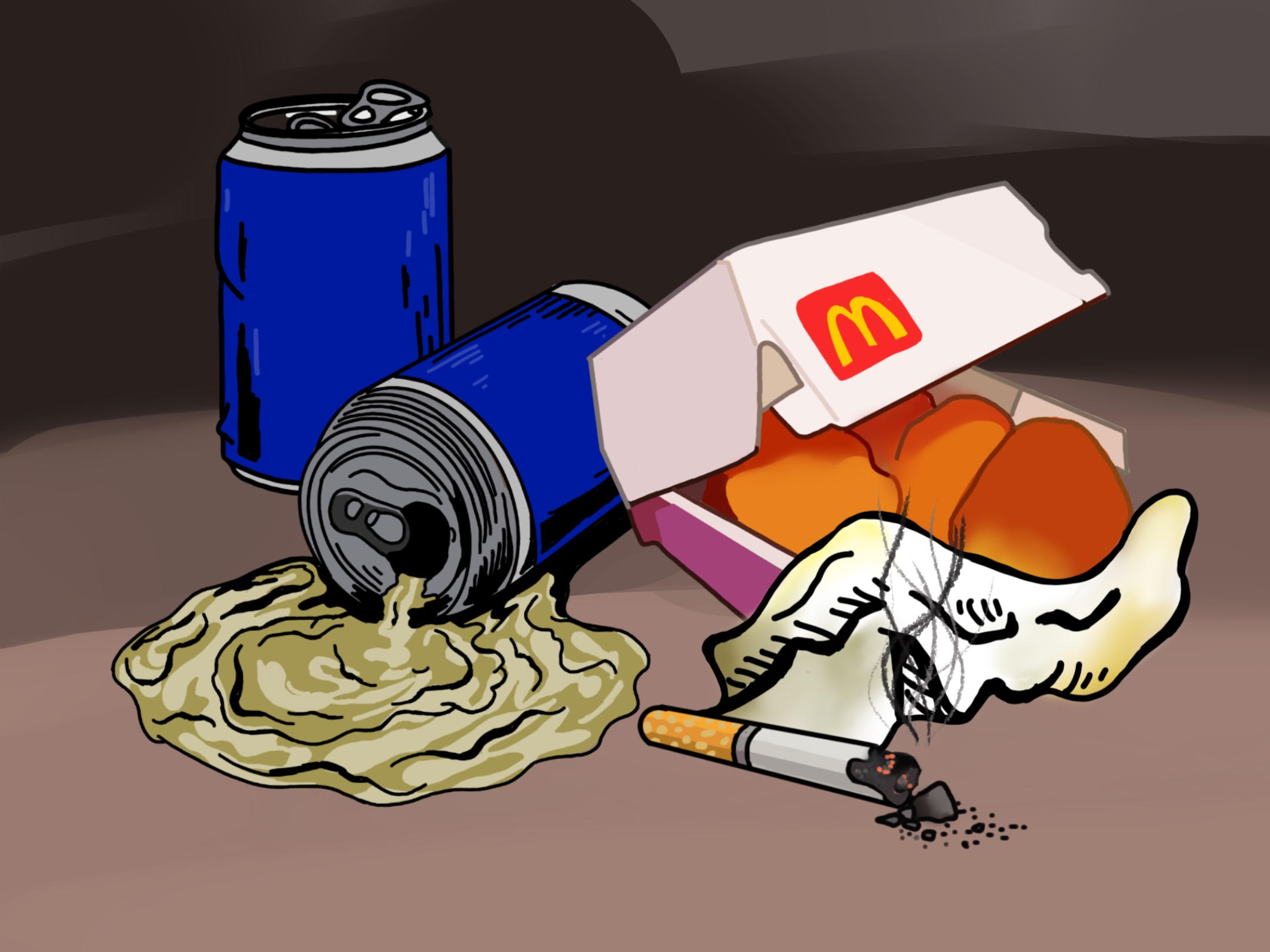How I broke up with Jack Daniels
A story of sobriety that doesn’t involve rehab, police, or overdoses.
In 2021, alcohol killed more people in the United States than drugs did at the peak of the opioid epidemic. In a single year, alcohol caused more deaths in the United States than guns and car crashes combined—a country that can’t go two minutes without someone calling for gun control. And yet, it’s not only legal to blackout and wake up covered in Cheetos watching reruns of Full House, but it actually makes for a pretty hilarious story. But as soon as OxyContin, Xanax, or methamphetamines get involved, suddenly you’re no longer welcome at the family reunion.
Now, before you start trying to pull me off my high horse, let me concede that alcohol is fun. It makes you sociable and there’s some cathartic anarchy that comes from it. Up until four months ago, I was drinking almost every day; sometimes it was a glass of wine with dinner, other times it was eight tequila shots and a 3 a.m. McDonald’s order. There was no emotional intervention or criminal record that demanded the change; I just came to the overdue realization that drinking wasn’t healthy for me.
In retrospect, the three-day-panic-inducing hangovers should have been clear evidence that drinking wasn’t beneficial to my mental health, but it never occurred to me that I should just stop. At the time, dancing shirtless on a stranger’s coffee table at 2 a.m. felt as much of a part of being in your twenties as struggling to pay your bills or eating out of Tupperware does.
In my life, alcohol worked on a cycle. I would go out, chase each drink with a poor decision, and then wake up at 8 a.m. too anxious to fall back asleep. My tongue would feel like sandpaper, my head like a bucket of nails, and I’d spend the entire day staring at the Netflix home page, unfit to make even the smallest of decisions. I’d profess that this would be “the last time” and that “I never want to get drunk again.” And then the weekend would pass, and come again, and I would make the same mistakes.
I wasn’t drinking any more than my friends. I just didn’t have the same resilience as the skinny-jeaned-fraternity-housed finance major who somehow made it to class after two hours of sleep and 12 Jagger bombs.
Despite the hangovers and panic attacks, it took a conversation with a friend to alert me to the obvious toll that alcohol had on my mental health—that is how normalized drinking is amongst my friends, my family, and my culture. Alcohol is so deeply engrained in Western society that the government is, quite literally, our dealer. Despite the immense collateral damage that alcohol causes, there is no way that this will ever change on an institutional level.
So, I made the change on an individual level.
I gave up drinking four months ago. There was no rehab or Alcoholics Anonymous meetings; it wasn’t a decision born of necessity, but a chance to take a step towards improving my mental health. The first few weeks were challenging—I quickly realized how often you need to make a conscious choice not to drink. And with every soda water ordered, I felt compelled to offer some explanation to the people I was with, as if I needed a signed note from my doctor to excuse myself.
If anything is a testament to alcohol’s entrenchment in Western society, it’s that you can’t stop drinking without people asking questions. Imagine if every time someone announced they got a membership to a gym or were trying a new diet, people were baffled, confused, and demanded answers as to why. But those conversations are temporary. Even if my friends were disappointed, I wouldn’t be puking in the stall next to them at 11 p.m. on a Tuesday night, they eventually understood.
It’s now been four months since I’ve spent a morning with my head in a toilet bowl. That’s 4 months where I didn’t have to wake up and try to piece together my fragmented memories of the night out, or reserve my afternoon for laying starfished on the living room floor waiting for the world to stop spinning. For four months, I haven’t had a lingering hangover, an abusive bar tab, or a moment of sober regret. I feel I’ve found consistency in sobriety, and it works for me.
And yet, for many people, alcohol is not an issue. Some people can go out, drink until they’re dizzy, and wake up for a 9 a.m. lecture without much of a headache, let alone an existential crisis. Kudos to you. But if you’re like me, and you struggle with mental health, consider taking a hiatus from alcohol and see if it makes a difference. You never know, it might just be the change you need.

